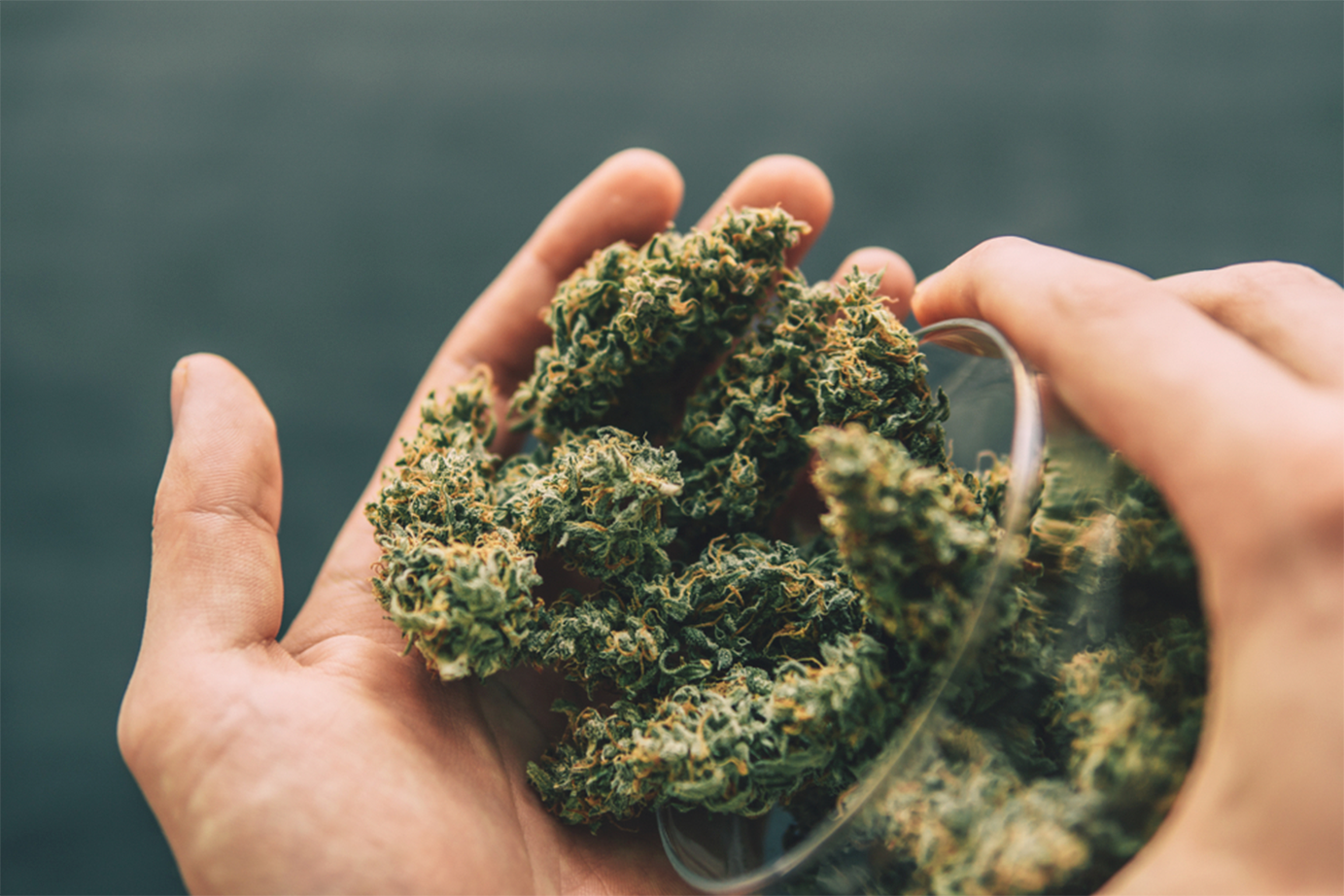The entourage effect refers to how various cannabinoids and other natural constituents work together synergistically to magnify their potential therapeutic properties. Introduced in 1998, a study by Israeli researchers Shimon Ben-Shabat and Raphael Mechoulam, the entourage effect theory maintains that isolated or synthetic cannabinoids aren’t as effective at eliciting curative effects as when all of the natural constituents work together harmoniously.
The two significant cannabinoids (CBD) and (THC) garner most of the attention for their ability to provide therapeutic relief work in conjunction with over 400 additional compounds to treat a multitude of medical ailments.
When cannabinoid oil is derived from the plant’s stalk and seeds, the extraction process draws out all of the plant’s terpenes, essential fatty acids, waxes, carbohydrates, fiber, protein, magnesium, iron, calcium, chlorophyll, flavonoids, and vitamins A, B, C, and E, and beta-Carotene, as well as other various cannabinoids. This “full-spectrum” oil allows you to take advantage of the whole plant and it’s natural healing properties.
Benefits of the Entourage Effect
By working together synergistically, the whole plant extract of cannabinoids and other natural constituents can affect multiple targets throughout the body. One recent study investigating cannabinoids’ potential therapeutic effect on muscle spasms caused by multiple sclerosis found whole plant extract to be more effective than administering THC alone.
The entourage effect also improves the absorption of active ingredients. Because cannabinoids are chemically polar compounds, sometimes it can be difficult for them to be absorbed. The other natural constituents may help improve their absorbability and viability.
Cannabinoids and natural constituents that work together also can better overcome bacterial defense mechanisms. While cannabinoids have shown to be potentially useful for treating bacterial infections, bacteria develop defense mechanisms over time. The other non-cannabinoid constituents found in cannabis also have antibacterial properties, utilizing different pathways to combat the bacteria.
While working together, cannabinoids and other natural constituents also minimize unwanted side effects. While THC alone can cause a euphoric response, and at times elicit anxiety and paranoia, CBD has shown it can modulate those undesirable effects.
When a complex mix of cannabinoids works in tandem with the essential nutrients and other natural components, they’re better able to provide their therapeutic and healing effects.
CBD and SLEEP
Studies have shown that as many as 60% of CBD users cite insomnia as the main reason they take CBD, and other studies have cited CBD’s ability to aid with stress and anxiety that can exacerbate sleep issues. But does CBD really make you sleepy?
The Endocannabinoid System
There is still some debate over whether CBD induces sleep or drowsiness. We do know that CBD interacts with our endocannabinoid system to help our bodies achieve homeostasis or balance. Homeostasis can lead to less stress and a feeling of overall relaxation and well-being, which could, in turn, improve sleep quality. The endocannabinoid system is a cellular-signaling network that plays a role in our mood, pain, appetite, and almost every physiological process in the body. Researchers are still learning more about the calming effects of CBD. Still, they know that CBD interacts with many different brain chemicals and receptors, and these interactions influence a variety of functions, including sleep.
CBD and Sleep Research
Research on CBD and sleep is currently somewhat inconclusive. In a 2013 study in the Journal of Psychopharmacology, scientists found that mice given smaller amounts of CBD became more active, but higher doses did make the mice drowsy. A much earlier study published in 1981 found that subjects who received CBD slept longer and more deeply with fewer interruptions.
However, a 2016 study found that CBD activates neurons in the hypothalamus, which promotes alertness, meaning CBD could actually make you feel more focused and awake. A 2018 study found that CBD did not alter the sleep patterns of individuals with already healthy sleep cycles. A 2017 review of all literature related to CBD and sleep concluded that CBD does have potential as a treatment for REM sleep behavior disorder and excessive daytime sleepiness.
Should I Try CBD for Insomnia?
In conclusion, CBD may help with many of the underlying causes of insomnia or other sleep issues, and for many, may provide effective relief. More research is needed to find out exactly why so many find CBD useful for sleep issues, and ultimately, each person’s experience with CBD is unique.
CBD for SENIORS
Health deterioration is an almost unavoidable part of the aging process, often leading many seniors to turn to a variety of pharmaceutical drugs with complicated side effects. Many senior citizens are turning to CBD and are discovering the positive impact on their overall wellness and vitality.
Here are just a few of the common ways seniors can benefit from CBD.
- Joint Swelling and General Pain Relief
Most seniors will, at some point, deal with aches and pains and joint soreness. Several studies have shown CBD to be a promising treatment for joint pain as well as its underlying causes. This is because CBD attaches itself to the CB-2 receptors, reducing inflammation and alleviating discomfort in almost any part of the body. The overall relaxation effects of CBD can also provide tremendous benefits for overall pain relief.
- Brain and Vascular Health
Scientists are beginning to understand CBD’s potential to support brain and vascular health and aid in post-injury recovery. A Neuropharmacology study revealed that rats administered with CBD experienced an improvement in brain excitotoxicity and neurobehavioral function. A 2015 study in the Journal of Cerebral Blood Flow & Metabolism demonstrated CBD’s promise as a “neuroprotectant,” with positive pharmacological effects.
- Sleep Disorders
Quality sleep is necessary for health and vitality, especially as you age, and sleep issues are common among seniors. CBD has shown to decrease chronic muscle spasms caused by neuromuscular disorders or random spastic episodes that can often interrupt sleep. Furthermore, CBD helps maintain homeostasis in our body’s endocannabinoid system, which can increase sleep quality and regulate sleep stability.
- Heart Health
Studies show that CBD has tremendous benefit for our cardiovascular system in several ways. First, it causes vasorelaxation in our arteries, which can support healthy blood pressure and increase blood flow to the heart. Also, it’s known to alleviate ischemic tissue damage, which can prevent the heart from receiving enough oxygen. CBD does not have to be smoked and can instead be consumed through oils and tinctures, making consumption for seniors easy and healthy. It can also be more cost-effective than using pharmaceuticals and produce fewer side effects.


 Free Shipping & Handling on all orders over $74 within the U.S.
Free Shipping & Handling on all orders over $74 within the U.S.